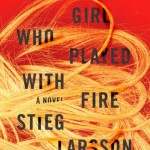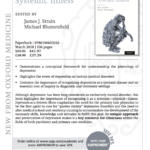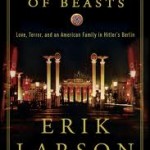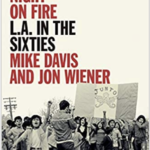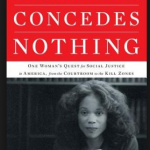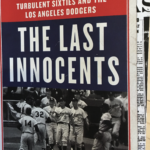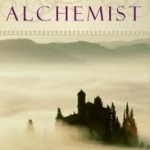How We Survived-52 Personal Stories by Child Survivors of the Holocaust
How We Survived- 52 Personal Stories by Child Survivors of the Holocaust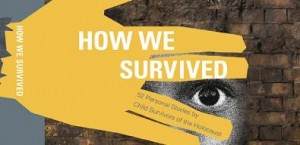
I have read many books about the holocaust, have seen many movies about this subject and have visited various holocaust museums throughout the world. As a psychiatrist, I have treated a few holocaust survivors and many more children of holocaust survivors.
I was therefore surprised how impacted I was by reading this book which consisted of the several page first person stories of 52 holocaust survivors most of whom were born between 1926 and 1938.
I became aware of this book it when a good friend of mine John Glass who is one of the 52 authors, showed me a copy of the book and told me about the project behind it. Each author is a member of the Child Survivors of the Holocaust, Los Angeles Organization that was founded in 1983 after the publication of the book “ Love Despite Hate” by Sarah Moskovitz, PhD which consisted of interviews with child survivors of the Holocaust as adults. Dr. Moskolovitz and Dr. Florabel Kinsler organized the largest international group of child survivors with a membership of more than five hundred people. In the introduction to this book, Marie Kaufman President of the Los Angeles child survivors group and Chair of the Editorial Committee that put together the book noted that many of the authors have given oral testimony to museums and to the Shoah Visual history Foundation. But in the fifteen to twenty years since they have done so, they have become aware that for many reasons they have left part of their story untold. This book gave them opportunity to disclose secrets never divulged before.
As one reads this book and digest the narrative which is recounting horrific early childhood memories, you cannot help but consider whether these are true memories. Could they be screen memories, retrospective memories based on things they were told and learned at a later age? In the course of psychotherapy and psychoanalysis we often help patients reconstruct early childhood memories and feelings. The accuracy of the actual memory may not be as important as the meaning. I do believe that the memories reported in this book do ring to be quite true. I also would suggest a simple exercise before you read this book. Reflect back on your three or four earliest memories. Sometimes it will be helpful to choose a key event which you can easily date such as the birth of a sibling, a death or tragedy or famous event such as the assassination of JFK or Martin Luther King or the landing on the moon, a particular grade school teacher etc. Often the event that you recall will have some negative or conflictual quality. My own earliest memory is when my mother left me alone in our apartment for a few minutes to do an errand and brought me back a chocolate bar. When I discussed this memory with her many years later, she was astounded that I exactly recalled the events and she was able to date it when I was less that three years old. I recalled being under the care of an aunt during the time that my sister was born and my disappointment that a cousin has seen her first. I was less than 5 years old . I also recalled my first day of kindergarden , when I was a few months older than 5. While each of these memories had some anxiety and conflict, they were minuscule compared to the intensity of experiences of being taken away from one’s parents, hiding for prolonged periods of time, starving and witnessing and being threatened with death and destruction all of which were common place in the 53 stories of this book.
There is another important dynamic which inhibited many of the child survivors from publicly telling their story . Many were hidden children who often had to assume non Jewish identities, sometimes having several different gentile names and personas over time as young children during the war . Each time it was impressed upon them that under no circumstances were they to reveal their Jewish identity as this could mean death to them and their adopted families. So even after they were liberated, reunited with any surviving families and were beginning new lives in the United States, many still would not readily talk about their Jewish identity especially with strangers
It is very difficult to understand the experience that these children had where a normal childhood was transformed almost overnight when Kristalnacht occurred in Germany, or when the Germans took over in Poland and issued the new regulations for Jews or similar events that happened in France, Hungry, Italy, Holland and any other places conquered by the Nazi’s. They moved from their comfortable apartments or homes to the Ghetto where they were jammed into one room with extended families and strangers. In anticipation of this situation or in response to it many of their parents made a decision where it was possible to do so, to send their children into hiding with non-Jewish families. In most of the cases the parents could not be hidden with their children. Childhood separation from parents is a very meaningful experience, usually traumatic with the possibility of lasting yearning, resentment, with a wide range of fantasies. This becomes colored by the subsequent events which might include loving, rejecting the adoptive parental figures as well as being torn away from one such family as you are moved to another one. . The fate of their Jewish parents was often death as was that of most of the their original families and friends. While many of the child survivors intellectually came to understand that the decision to try to hide them allowed them to live, the full emotional understanding of this generous act on the part of their parents did not come to them until many years later. It was often when their own children born in a safe environment were now the age at which they had been put into hiding by their own parents, did they appreciate the sacrifice that was made for them. For some this realization did not occur until they had grandchildren who are at the age that they were hidden .
It is important to note that the trials and tribulations for many of these child survivors did not cease with their liberation from concentration camps or from their places of hiding.
In some situations there was persecution by the Russians who liberated them or continued anti-Semetism when they tried to return to their home town. There were hard times often relieved by the many organizations and people who tried to help them reunite their families. There were painful discoveries of what happened to missing family members. There was also long waits for visas to new countries , long travels across the ocean, learning new languages and adapting to a new culture
As was the case of many survivors who were adults during the holocaust , these child survivors spent many years trying to forget and not to look back. They were building a new a life and did not want their children haunted by such terrible events. Their parents who survived or adoptive parents and relatives often did not believe that the experiences which they had as children made a lasting impression on them. As they moved on to a “normal life” in the United States the child survivors themselves thought that their memories and experiences were quite unique and as mentioned above were not inclined to talk about them. Many report an amazingly dramatic unburdening feeling when they attended their first meeting of child survivors. The intensity of that feeling and the realization that so many other children had gone through similar events was life affirming and literally changed the course of the lives.
It is noteworthy that so many of the child survivors have gone on to have very productive lives. Perhaps because they themselves have been helped by strangers (many of whom have been recognized in Yad Vashem as the ‘righteous gentiles” or “righteous among nations”) they have chosen a helping profession themselves. It seems to me that a high percentage have gone on to be social workers, therapists and teachers. Some report moving into these fields after a successful career in business. Others have become artists and poets expressing their feelings and experiences in their work. There were numerous poems as part of the narratives.
Many of the child survivors did not talk about the past for most of their lives and for many it has only been in their twilight years that most have felt an obligation to tell their stories or record a first hand account that will exist for future generations. A good number of the authors of this have devoted many hours to teaching about the holocaust in schools and museum and giving lectures in various settings. These activities and the writing of the chapter for this book as well as other publications that some of them have done appears to have been therapeutic for the. .
The authors appeared to have tried their best to be sincere and honest in sharing all these events and their past and present feelings about what they have been through. For most there is a triumph for having survived and for being responsible for the presence of so many wonderful people that they have nurtured and supported in their subsequent lives For some of people there is still an ever present wound or bewilderment and pain which stretches from their childhood to their later years. They are still trying to figure out why and how the events of their childhood could have happened. For all there is the satisfaction of having told the story of what really happened so those who were deprived of their lives will not be forgotten
This was not an easy book to read. While I read it in linear fashion over a two week period and did not intersperse with other books perhaps that might not be the best way to read it. For some it might be best to consume it in small doses . I suspect that some readers will appreciate the value of the book but will put it aside and may not complete it.

I realize also that I may not have captured the essence of the experience of the authors in this review. I would like to give you a few random excerpts although I hope over time you will read the complete version of each of these 52 stories as they all deserve to be remembered:
Lea- Born 1938 I was placed through the Dutch underground with a Christian family. There were many other children. Suddenly the family was betrayed. The underground took all the children away to new hiding places. On of my first memories was of being on a train with other boys and girls…. I was taken to family of farmers in the small town of Horst by two men dressed in police uniforms. My clothes were torn and I had sores all over my body. The men said that they ha d smuggled me out of some detention center but I have never been able to find out what happened to me.
Jack- Born 1926- The ghetto was organized into factories of every possible trade and all the the production was for the German military…My father could not get employment…When I saw my dad for the last time he was forty one years old…In July 1944 we were transported in cattle cars to Auschwitz-Birkenau. I was with my mother…(We) went through a selection conducted by Dr. Mengele. My mother was sent to the other side. Now sixty four years later, I can still see her walking hunched over, as if she know where she was going. I’m still haunted by this picute and I know that I will for the rest of my life. How do I reconcile the fact that my children are now older than my parents were when they were murdered.?
Lya- Born 1936- When I was seven and she (sister) was four we both went into hiding with different families. The thought never occurred to me that this would be the last time I’d ever see my parents. They never knew where we ended up…In 1946 my sister and I were sent live with Parents Number 5 in Denmark…I was a very difficult teenager. Obstinate, opinionated, aggressive. I was sent out of class many times. It was sheer anger- a way of expressing myself to the world…My husband ( also a survivor) wasn’t interested in talking about his experiences and for the longest time I didn’t think that mine really countered. …I started dealing with my past in 1993, I was fifty six…. That’s when I first shared my story ( in a group ) about losing my parents, grandparents, being separated from my sister and being in hiding with strangers. After that night, I became more aware of my own feelings. I could justify them. They were real and they weren’t something nonexistent.
Peter- Born 1936- In 1940 when I was four years old I was no longer permitted to attend my pre school nor to attend any other school. From my earliest memories, I had to wear a yellow star with the word “Jude” on my jackets and shirts…People looked at us in disgust and were often rude to my mother when she shopped for food…Only 32 out of the 100 Jews transported in the cattle car I was in survived the Holocaust. I lived in the children’s barracks (in Terezin)…We slept in bunk beds on straw and had only a thin blanket. There was only cold water to wash ourselves in the summer and harsh winters…There was small piece of bread in the morning with some brown water they called “coffee” and for supper a watery soup with an occasional small potato. We were half starved yet we were expected to work…(After the war)I lived my teenage years as a laborer, farm hand truck driver across the US. …By the age of 33 I had completed high school, graduated from San Diego State University and received a graduate degree in Global Management. … I have seven grandchildren.
Robert- Born 1935- When I was four years old our lives changed forever, The Gestapo came to our apartment and told us to take just a little luggage and follow them. They sent us by train to the Polish border. The poles would not let us in and Germans would not take us back…We traveled around Poland living as gentiles with an assumed name….The family that hid me decided to put me in the attic in the house. Many times they forgot to take care of me and did not feed me. …After the uprising failed the Germans planned eliminate the city’s population.. Everyone was loaded upon trains, which were headed to Auschwitz. …We knew we were going to be killed…My mother noticed that one of the cars had an opening on top. The train stopped about 100 yards from the Auschwitz concentration camp. My step father Emil lifted me up over the open car and I was able to open the train car door…In February 1947 we took a boat to America and settled with our extended family in Pittsburgh. I quickly learned English and graduated from Carnegie Mellon University in 1957 with degree in electrical engineering. …Over the years I have spoken about the holocaust to thousands of middle and high school children.
Erika- Born 1928- At the time of my birth my parents (in Hungary) owned two kosher restaurants. I went to school unitl the age of fourteen when the anti Jewish Hungarian government closed the Jewish schools. Anti-Semetism forced many Jewish owned businesses to close or be taken over by non-Jews. Most of my uncles had been taken to forced labor camps in early 1940-42…I was deported to Auschwitz with my mother. We were lucky and escaped the selection. …On the day the Soviet liberators entered our camp they raped many women and wanted us to work for them. …I was helped tremendously by breaking the silence and talking about my experiences. Confronting my losses and acknowledging the effects of the traumatic times in my life have helped me to recover psychologically. However I still have problems such as fear of authority, anxiety about the health of my family, about separation and the fear of loss.
For more information or to order this book go to www.childsurvivorsla.org


